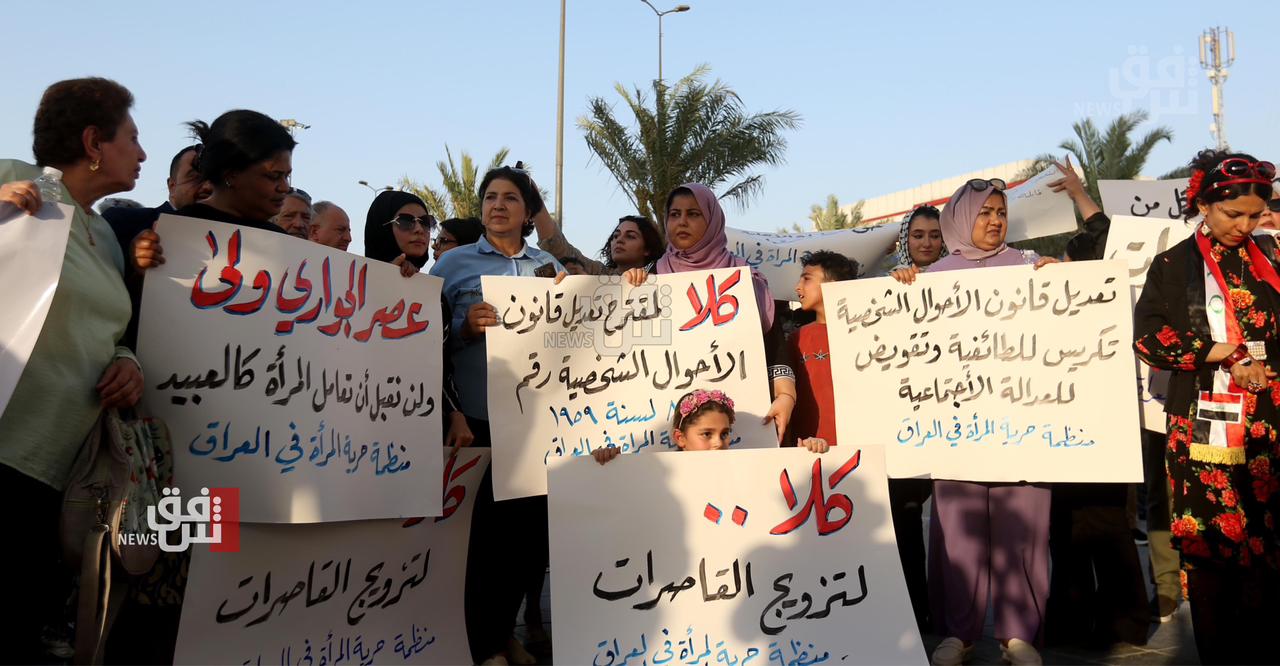Senior Shiite cleric rejects amendments to Iraqi Personal Status Law

Shafaq News/ Sheikh Mohammed Khalil Al-Sanjari, the representative of the Shiite religious authority in Baghdad, declared on Wednesday that the supreme religious authority would reject any amendments to the Personal Status Law that contradict Islamic Sharia.
Speaking to Shafaq News Agency, Al-Sanjari discussed issues related to alimony, inheritance, and marriage under Islamic law and their alignment with the proposed amendments.
Regarding alimony, the new law stipulates that if a woman leaves her husband's house, she is not entitled to alimony. Al-Sanjari clarified, "Under Sharia law, a woman is entitled to alimony during the 'idda' period, which lasts for three months, as she remains his wife and has the right to housing and other necessities, as indicated by the Quran verse, 'Do not turn them out of their homes.' Thus, she should not leave until the 'idda' period ends."
Al-Sanjari also commented on cases where a woman leaves to stay at her parents' house and files for alimony. "This is not permissible if she left by her own will and not by her husband's order. If he ordered her to leave and go to her parents' house, she is entitled to alimony. However, if she left on her own accord, she is considered disobedient and not entitled to alimony."
He further noted that under Sharia, if a woman stipulates in the marriage contract that she can obtain a power of attorney and the right to divorce in case of a dispute, she is entitled to exercise this right, and it is valid according to Sharia.
Regarding the issue of marriage at the age of nine in the Jaafari sect, Al-Sanjari stated, "A girl is considered mature at nine years old, thus marriage is permissible. This is a general ruling and not obligatory, but as an Islamic obligation, she is considered accountable at nine, and a man at fifteen. This varies based on the region's climate."
On the matter of inheritance, he said, "Under Sharia, a woman inherits by virtue of marriage or kinship. She is entitled to one-eighth if she has children, and one-fourth if she has no children. If the new law states that a woman cannot inherit if her husband dies, we will not agree to it because Sharia grants her inheritance. We will reject any measure that contradicts God's law."
In conclusion, Al-Sanjari affirmed that "in the amendment of the Personal Status Law, we agree on alimony if the woman leaves by her husband's order and on marriage at the age of nine. However, we will reject denying inheritance to women, as it contradicts Islamic Sharia. Although the amendments to the new law are still under discussion and we have not reviewed them yet, the constitution stipulates that laws must be legislated per Islamic principles."
The Iraqi parliament, in its fifth session of the second legislative term of the third legislative year of the fifth electoral cycle, chaired by Deputy Speaker Mohsen Al-Mandalawi and attended by 177 members, completed the first reading of four laws, including the amendment of the Personal Status Law, on Sunday.
According to a statement from the parliamentary media department, the parliament completed the first reading of the proposal to amend Law No. 188 of 1959 on personal status, after voting to add it to the session's agenda. The amendment aligns with Article 2 of the constitution, which prohibits enacting laws that contradict the established rulings of Islam, and Article 41, which guarantees individuals the freedom to adhere to their personal status according to their sects, or choose to apply the provisions of the amended personal status law, ensuring the unity of the judicial system in applying the law and Sharia rulings on personal status.





